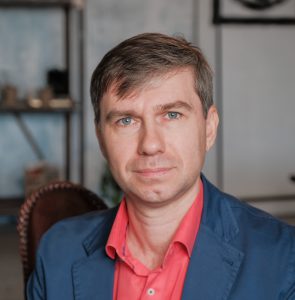
It is my great honor to have been elected as the President of the International Society for Salt Lake Research (ISSLR), alongside Mianping Zheng as Vice-President, Ben Abbott as Secretary/Treasurer, Tianlong Deng as Editor, Yongjie Lin as the Young Scientists Representative, and Elena Anufrieva, Faith Coleman, Katia Hueso, Lynn de Freitas, Meryem Beklioglu, and Tamas Felfoldi as Members-at-Large.
My journey in salt lake research spans over two decades. My first engagement with ISSLR was through the active organization of the 8th International Conference on Salt Lake Research (ICSLR) held at Shira Lake in 2002. I had the pleasure of attending the 11th ICSLR in Argentina, where I was deeply impressed by the diversity and quality of salt lake research from around the world. Following this conference, I was elected to the ISSLR Board. After the 12th ICSLR in China, I was honored to serve as the Society’s Vice-President. The subsequent conferences in Russia (2017), Spain (2021) and Turkey (2024) were organized with my active involvement. In 2022, I was elected President of the Society for the first time.
During my tenure, I proposed the establishment of a triennial Best Paper Award for young scientists, which has already been awarded three times (2017, 2021, 2024). To foster greater interaction between the Society and the public, I also initiated the ISSLR Photo Competition.
As President, I believe our primary goals are to maintain our successful practices, such as organizing regular conferences and supporting young scientists through awards like the Best Paper Award and the Bill Williams Award. Additionally, we must focus on attracting more scientists to the Society by aligning the interests of the Society with the personal and career goals of our members.
For the next three years, I propose that we focus on the following priorities:
- Establishing Working Groups: Creating specialized groups (e.g., geology, soda lakes, ecosystem services) to provide members with opportunities to engage more actively in the Society’s activities.
- Collaborative Projects: Encouraging collaborative research among members and inviting external scientists to participate. Such projects, resulting in high-quality research and publications, are a strong incentive for joining the Society.
- International Engagement: Actively participating in international programs (e.g., UN, EU, UNEP, IPBES) and projects related not only to saline lake research but also to their conservation and management, including collaboration with NGOs.
- Social Media and Communication Strategy: Enhancing the coherence and visibility of our social networks to better connect with members and the broader scientific community.
Finally, I pledge to work diligently, with the support of the Board and our members, to elevate the level of salt lake research and expand the influence of the ISSLR.
Egor Zadereev
Institute of Biophysics, Krasnoyarsk Research Center, Russia
2025
